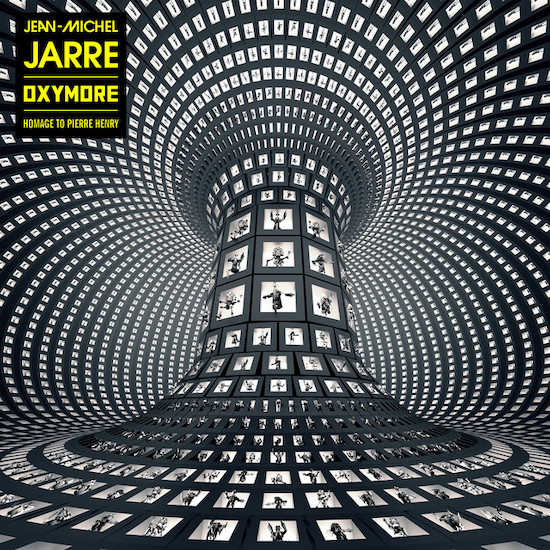On Oxymore, the French electronic music pioneer Jean-Michel Jarre has fleshed out an imaginatively diverse vision of futuristic sound. A tribute to Pierre Henry, the late French electronic composer and one of the first proponents of musique concrète in the 20th century, the album takes its lead from stems and samples that were made by Henry before he passed away in Paris in 2017. Sonically, Oxymore is an extension of Jarre’s iconic 1976 album Oxygene but packed with more mystery and a denser atmosphere.
The album announces its collaged texture from the moment the first track ‘Agora’ kicks in. It unfolds with what sounds like fire mixed with rain on a hard surface as it quickly introduces a voice sample evocative of a radio announcement from the 1980s. With more processed sounds, the second track ‘Oxymore’ reminds me of a suspenseful chapter in an old-school computer game.
Oxymore takes a futurist songwriting approach that is nonconformist and more inventive than most synth-heavy releases of this era. On this eleven-track-long journey, Jarre concocts a plethora of scenarios as he weaves recordings and processed voices to produce a sense of unpredictability. On tracks like ‘Animal Genesis’, ‘Sex In The Machine’ and ‘Zeitgeist’, Jarre uncovers an intriguingly strange form of techno-erotica through the use of what sounds like machinic whispers and moans. There are orchestral strings, incomprehensible spoken word in French, fragmented and processed, mixed with echoes in English that make both ‘Sonic Land’ and ‘Zeitgeist’ the darkest tracks on the album.
For the most part, Jarre has effectively dovetailed repetitive drum patterns, slow-rising, siren-like synths and processed voice on Oxymore – making this a pretty dancefloor friendly record. However, tracks like ‘Synthy Sisters’ and ‘Epica’ are not devoid of their monotonous moments that seem to tune out in comparison with his penchant for the agile textures of musique concrète.
Pregnant with a myriad of recorded and processed sounds, Oxymore is a record that cleverly entwines dark and tense songwriting and delivers a hauntingly curious resolution, like the ending of the very computer games it so adroitly emulates.


